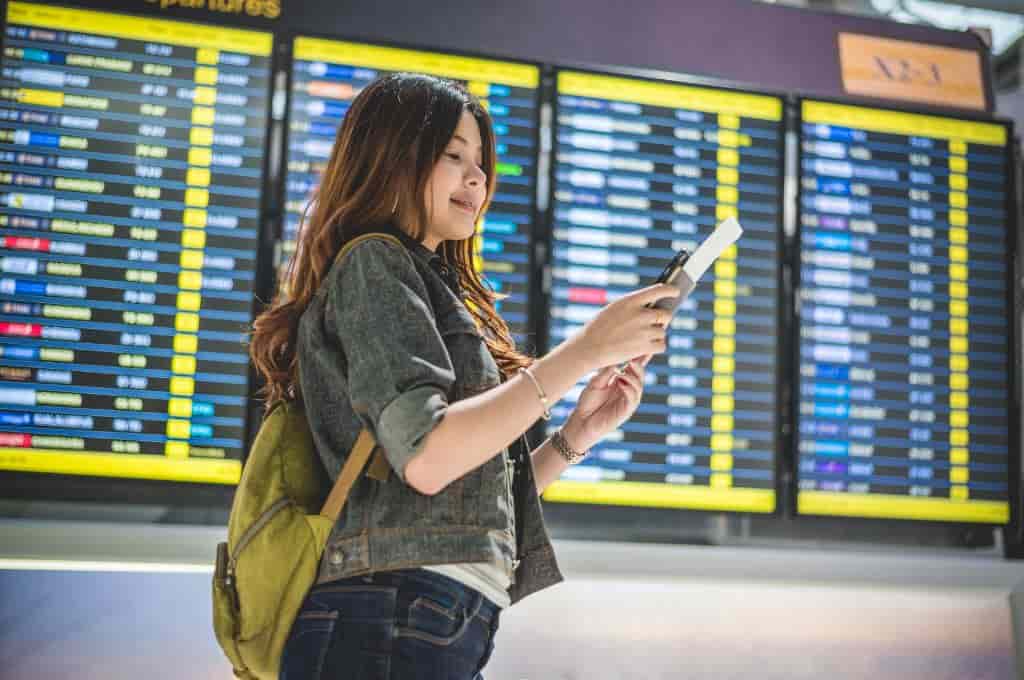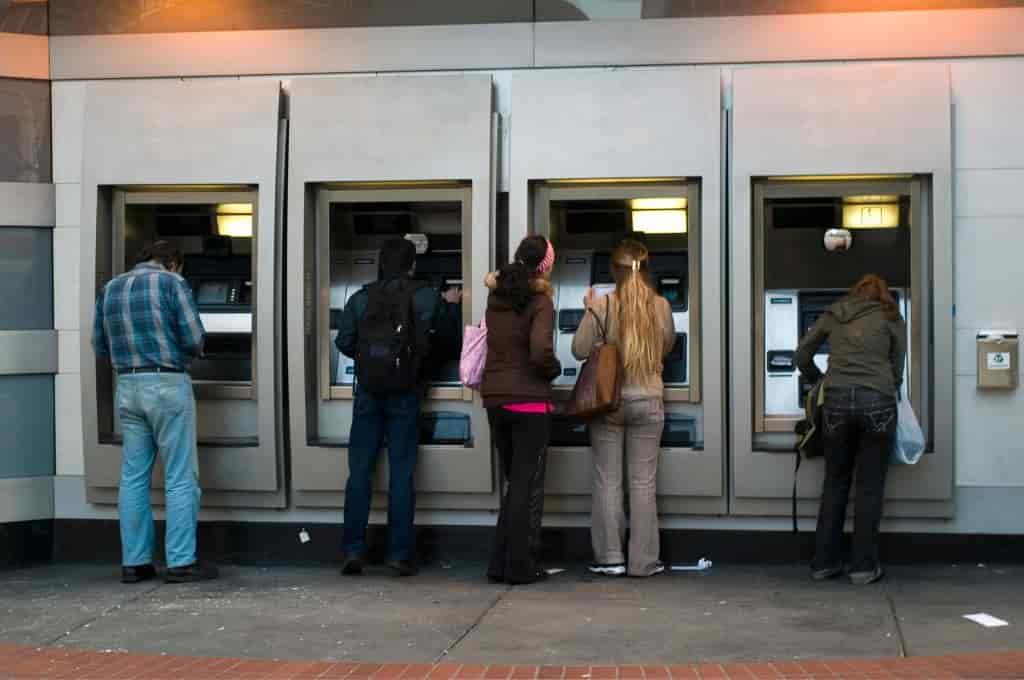Top 11 Tips For Traveling on a Budget
- By Seema
Budget travel does not imply cheap travel. It simply means that you can enjoy the finer things in life without having to dig deep into your pocket. A little planning and forethought are all that is required to save money on all components of your trip: airfare, hotels, transportation, food, experiences, tickets, and so on. This might result in a few frustrations and compromises, but if you are creative and smart, you will be able to make the most of your trip while keeping your expenses in check.
So, if you’re wondering how to travel on a budget, you’ve come to the right place. Read this guide to plan a budget-friendly vacation. You don’t have to be a backpacker to use these recommendations. The following tips can be used by any type of traveler to stretch their money further.
1) Set a Budget
Determine how much money you want to spend on your trip and budget for lodging, transportation, food, activities, and souvenirs. A well-defined budget will allow you to make more informed decisions throughout your journey.
2) Pick Affordable Destinations to Visit
Some places are pricey all year and should be avoided if you’re on a limited budget. Pick locations like Eastern Europe, Southeast Asia, India, Italy, or Mexico that are wallet-friendly, beautiful, and fascinating instead of prohibitively expensive destinations like Switzerland, Norway, Japan, or the Maldives. Check the country’s currency exchange rates as well before planning your trip. If you travel to a destination where your currency is strong, you will be richer there than at home. This means you’ll be able to stay in better hotels, take cabs, enjoy premium tours, and indulge in an array of other luxuries without breaking the bank.

3) Travel During the Shoulder Period
Every destination has a shoulder season. Flights, hotels, and tours are significantly cheaper during these off-peak times because the weather may not be ideal. Or there is a tourism slump after school vacations/holiday season. So, think Greece in September-October, Hawaii in the summer, and Southeast Asia during the monsoon season. Research the destination’s low season and plan your trip accordingly to take advantage of reduced costs. Having fewer people around makes it easier for you to enjoy the location.
4) Find Cheap Flights
Airfare is one of the most expensive elements of traveling. It can deplete your travel budget and force you to make compromises on other aspects of your trip. So, look for ways to save money on your airline tickets. Be flexible with your flight times and days. Traveling during the week or flying at odd hours tends to be cheaper. For example, tickets are usually less expensive on Tuesdays through Thursdays. Most of us would find those days inconvenient, which is why they are reasonably priced. But why not change your plans for a couple of days here and there to save hundreds of dollars?
Using airfare alerts, booking ahead of time, comparing search engines, being flexible with layovers, considering alternate airports, and flying budget airlines can lead to significant savings. Keep an eye out for any discounts and deals that airlines offer now and then. Join the frequent flyer program and use your miles for emergencies and upgrades.

5) Travel on the Ground
If you plan ahead of time, you can easily find cheap flight tickets. But if you cannot do so, consider making your journey by train or bus. Train travel is always enjoyable and provides insight into local culture, especially in countries like India. Not only that, but you’ll get to see more of the country through the window of your bus/train. Taking the train in Europe is extremely simple and convenient, and it also gives you a lot of flexibility. One significant advantage of traveling by land is that you can reach the city center, whereas airports are typically located outside of the city. This saves time and money when traveling between the airport and the city.
6) Travel Light but Pack Well
Packing light can help you save money on excess baggage fees, — particularly if you’re flying with a low-cost airline. A light load would also make it simpler for you to move around and utilize public transportation. So, bring only what you need and avoid carrying unnecessary baggage. If in doubt, leave it at home. However, make sure to pack all of the essentials so you don’t have to buy them on your trip. To minimize the amount of clothing you need to bring, think about doing laundry while you’re on a trip.

7) Save on Accommodation
Shop around for the best hotel rates, as there are plenty of deals available on third-party portals. For some great offers, make your reservation as soon as you can. Just make sure to select the refundable option. Vacation rentals like Airbnb are usually less expensive than traditional hotels, especially if you travel in a group or stay for an extended period. They also include a kitchen where you can prepare meals. If you have the necessary gear and equipment, camping is an exciting way to reduce lodging costs. Couchsurfing is a boon for those who want to stay free. The App is the most famous online network of hosts, allowing travelers to stay with them for free.
Taking overnight trains or buses is another way to save money on accommodations. Overnight travel allows you to arrive at your destination without wasting a day, giving you more time to explore. Staying just outside the city can occasionally result in significant financial savings. Simply ensure that you have easy access to public transportation.
8) Walk or Take Public Transport
Walking is the best way to discover hidden gems and learn about the local culture in a new city. Furthermore, it is completely free. When you are unable to walk, use public transportation. Mass transit is cheaper, especially if you are traveling solo. Most cities offer a day/week pass that is always more cost-effective than purchasing individual tickets. If you are comfortable driving in a foreign country, renting a car is a good option. When it’s necessary to take a cab, ride-sharing services such as Uber/Grab/Ola/Lyft are always less expensive than traditional taxis.

9) Spend less on Tourist Attractions
It is possible to find free activities all over the world. Historic walks, parks, hiking trails, beaches, and churches are usually free. On certain days, most museums offer free admission. You can also save a lot of money by purchasing a city pass, which grants you free transportation throughout the city as well as entry to all the top attractions. This is particularly true in Europe. Carry your student or senior ID card to receive discounts on admission tickets for attractions and public transportation. Avoid pricey tours and create your itinerary without the help of agencies or guides. Take advantage of the available audio guides; they will typically explain everything in great detail.
10) Save on Food & Drinks
You don’t have to eat out every meal, as it adds the most to your daily expenses. Stay in an apartment/house where you have access to the kitchen. You can prepare your meals by purchasing groceries from local stores. It can be fun to experiment with new recipes using locally grown produce and brands. If staying in a hotel, book a room with a complimentary breakfast. Cafes and restaurants serve lunch at a cheaper price than evening meals. So, if you want to eat out, do so at lunchtime.
Avoid eating at the main tourist sites and instead, seek out local eateries away from the attractions. The food there would be authentic, cheaper, and tastier. Street food in a few countries is incredible and so cheap. It should never be ruled out, especially if you’re looking for ways to save money. Cut down on booze and minimize buying drinks at bars. You can buy from a supermarket and enjoy it outside. Airport food is overpriced, so bring something to eat for the journey.
11) Be Vigilant about Money Transactions
Be mindful of currency exchange rates and fees on your credit or debit cards. Get a travel-friendly credit card with ties to airlines and hotel chains. This way, you can earn substantial rewards that can be redeemed for free upgrades and tickets. Always keep some local currency in your pocket because there may be places where cards are not accepted or where local vendors levy a surcharge. Most of the time, withdrawing money from ATMs is less expensive than exchanging money. One rule of thumb is to never exchange money at the airport because they charge exorbitant fees.

Bonus Tips
- If you plan to use your phone a lot while traveling, think about buying a local SIM card with cheap data and calls. It is much cheaper than an international roaming plan.
- Contact some locals who can advise you on local activities, non-touristy neighborhoods, best markets, good eateries, and so on.
- Learn about the local laws, customs, and traffic regulations. This way, you can follow them and avoid fines.
- Traveling in a group is guaranteed to save a few bucks. However, travel with people on a similar budget, or you may end up blowing your entire budget.
- Once you’ve decided on a travel budget, use a budget app to track every penny spent. This makes it easier to see where your money is going and how it can be cut back.
- Check the weather forecast for the next few days and come prepared.
- Bargaining is the norm in many countries. Everything has to be negotiated, including tours, taxis, shopping, car rentals, and so on. So, if you haggle hard, you can save a tidy sum.
- Always keep a medical kit on hand in case of an emergency, as even minor illnesses can prove costly. Medicines available over the counter in your home country may require a prescription in the destination country.
- If you contract an unknown illness or are involved in an accident in a foreign country, you could end up paying a large sum. Therefore, never depart the country without sufficient travel insurance. The additional cost may be significantly high, but it is well worth it.
To summarize, you don’t need a lot of money to have an authentic and enjoyable experience. If you have any other budget travel tips to share, please leave them in the comments section below.

This Post Has 3 Comments
Great tips! I like the ideas about going in the shoulder seasons.
I just read your blog post about traveling on a budget and I found it very helpful! I love the way you provided specific tips, such as cooking your own meals and staying in hostels. I am definitely going to use these tips when I plan my next trip!
These budget travel tips are truly invaluable! They make exploring new places affordable and stress-free, proving that amazing adventures don’t require a big budget. Perfect advice for anyone looking to travel smart and save more. Thanks for sharing!